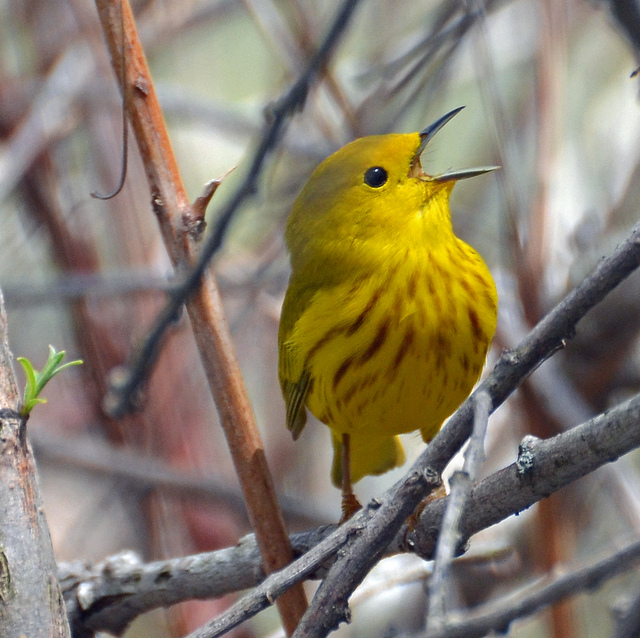Do the songbirds in their yellow suits
dancing across the Magnolia’s limbs
ever feel a panic come over them?
Sweaty claws
let go of the bark,
darting away,
hearts beating uncontrollably,
and yet there’s hesitation
on looking back at what they left—
or
do the songbirds
in their yellow suits
sing away
their fears,
note-by-note
panic falling in the wild rye,
as their melody floats
across the morning sky?
.
I am not separate from nature, but sadly, there have been times when I lived divided from the beauty of the wild spaces—and yet, I’ve always returned to them.
I’ve felt the panic like the birds and wanted to run away from the crowded lines in a grocery store or the grid streets of a suffocating suburban landscape—so I did.
In nature, the I becomes a disappearing act into the wild. I forget about me. I lose track off my problems and take delight in the beautiful simplicity of such a multifaceted world.
Nature isn’t far away from any of us—and yet, so many of us forget to find solace there. She’s a dandelion growing in between the cracks of the concrete. A hawk flying over the city park. The lavenders and pinks on the clouds at sunrise.
Nature is always there, but many of us have chosen not to interact with the beautiful simplicity.
In fact, a term—Nature-deficit Disorder (NDD)—was coined for this disconnect between nature and humans.
It isn’t a medical term, but more of a way in calling attention to how people’s disengagement from experiencing nature may be detrimental for our well-being.
“Nature-deficit disorder describes the human costs of alienation from nature, among them: diminished use of the senses, attention difficulties and higher rates of physical and emotional illnesses,” writes Richard Louv in his book, The Last Child in the Woods: Saving Our Children from Nature-deficit Disorder.
I agree with Louv’s perspective, as I am re-energized after spending even 10 minutes in nature or experiencing an “aha!” of finding a piece of nature within the urban landscape.
In recognizing my connection to the songbirds, the worms and even the vultures, I can see that my problems are just problems—they’re a story.
Like the songbirds that I wrote about in the above poem, I can either stay trapped by panic about a particular story, or I can sing a song—live my moments with a lilting tune instead of being fearful.
To do so, I’ll only need to do two things—zip up my boots and put on my little yellow rain-jacket for a slow long walk in nature.
.
Relephant:
Birdsong Reminder.
.
Author: Jessie Wright
Editor: Yoli Ramazzina
Photo: Flickr/Rodney Campbell


 Share on bsky
Share on bsky





Read 0 comments and reply